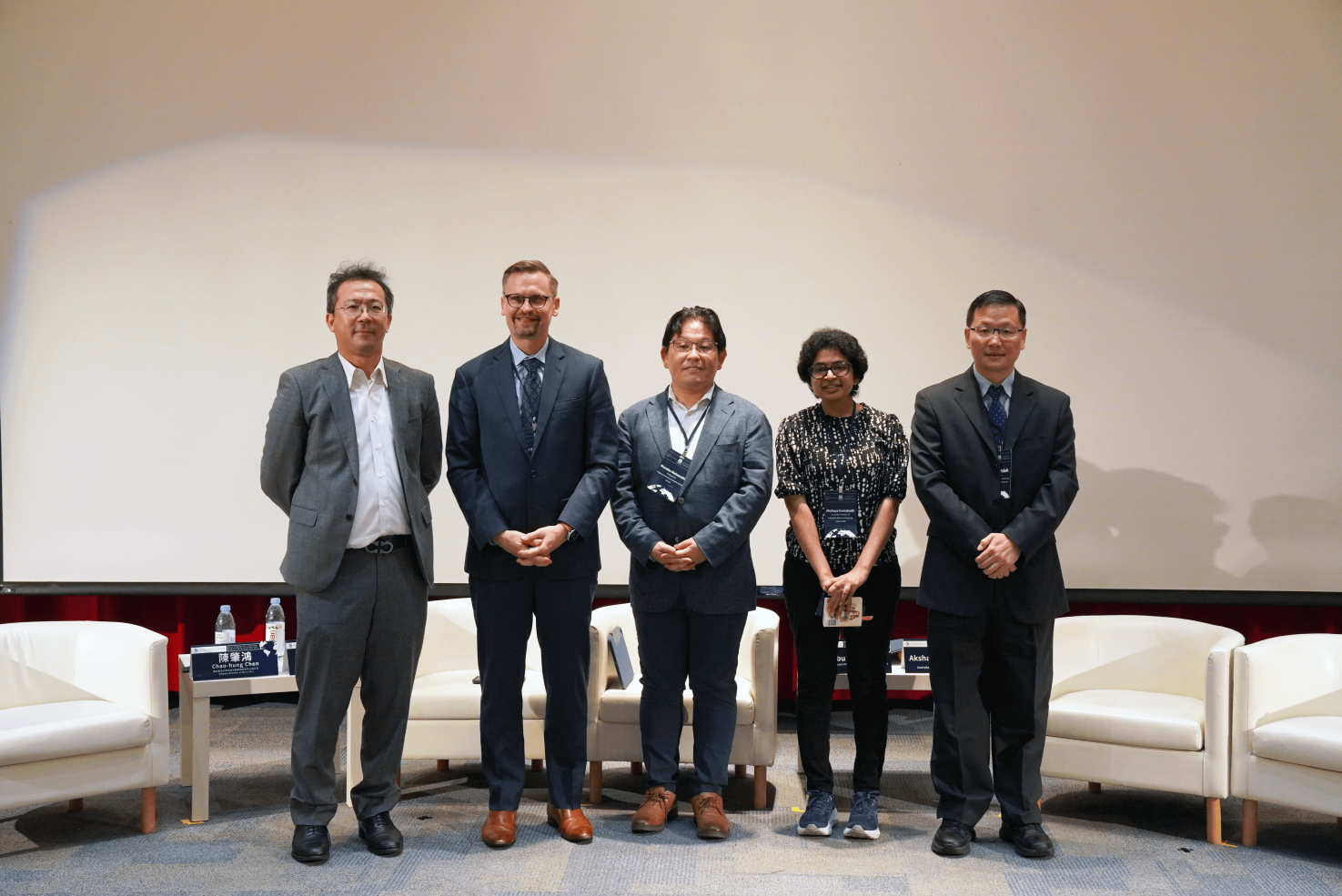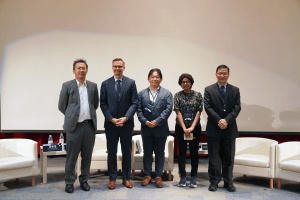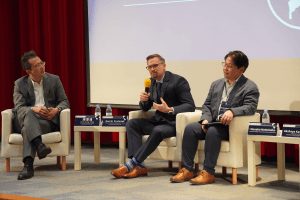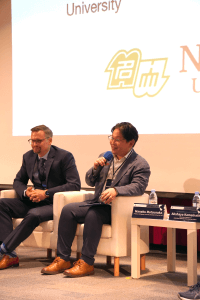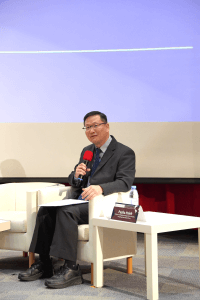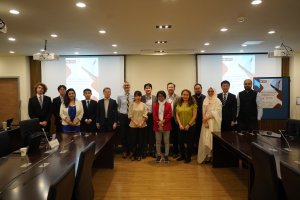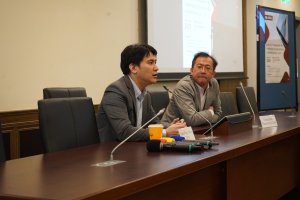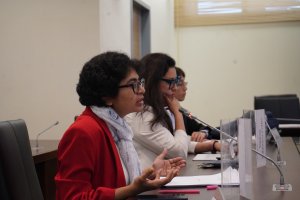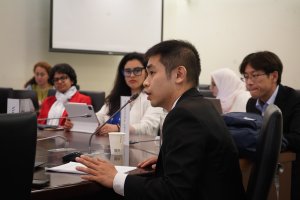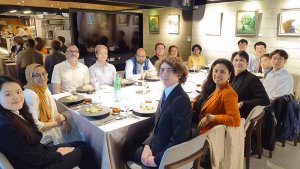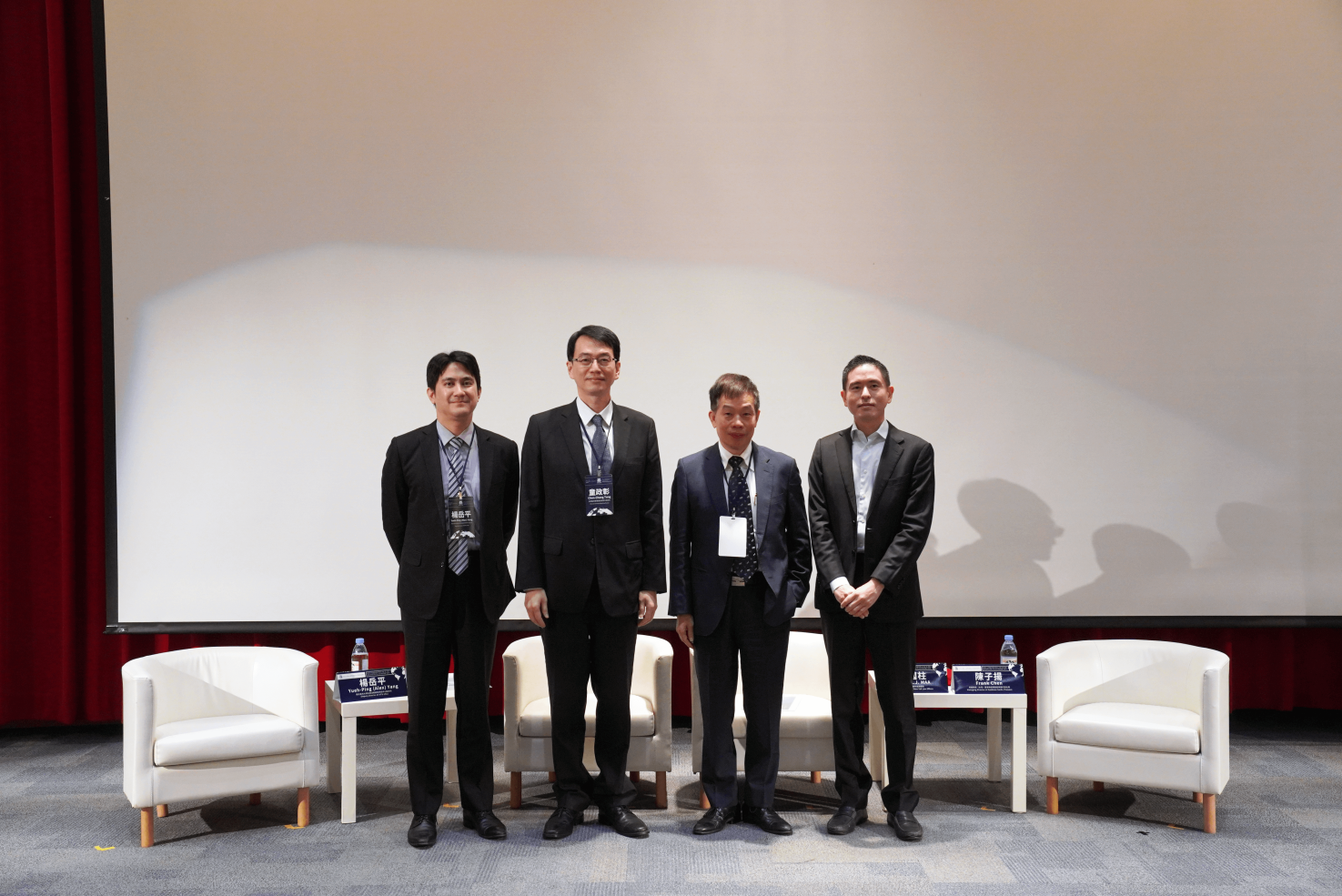
2025.05.21
Latest News⭐️ Event Highlights Recap (Part III): NTU CIEL Inauguration Ceremony|Corporate Law in the Era of Geopolitical Economy ⭐️
NTU CIEL Inauguration Ceremony|Corporate Law in the Era of Geopolitical Economy
May 12, 2025 – NTU College of Law, Tsai Lecture Hall, International Conference Hall
On May 12, 2025, the “Center for Innovation in Enterprise Law” (CIEL) was officially inaugurated at the International Conference Hall of the Tsai Lecture Hall, College of Law, National Taiwan University (NTU). The ceremony marked the unveiling of NTU’s first university-level legal research center and featured a thought-provoking roundtable forum on corporate legal innovation in an era shaped by geopolitical and economic shifts. Let us look back on the highlights of this landmark event.
The second roundtable session was moderated by Deputy Director Dr. Yueh-Ping Yang of the Center. He was joined by three distinguished experts from the public, private, and academic sectors:
Mr. Cheng-Chang Tung, Director General of the Banking Bureau at the Financial Supervisory Commission;
Mr. Kuo-Chu Ma, Chief Advisor at Chien Yeh Law Offices; and
Mr. Tzu-Yang Chen, Managing Director and Head of Investment Banking at Goldman Sachs Taiwan.
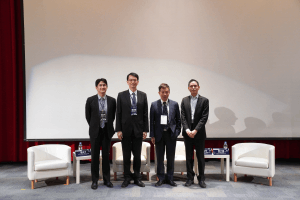
The session began with a keynote address by Director General Chen-Chang Tung of the Banking Bureau, Financial Supervisory Commission, who offered insights from the perspective of a financial regulator. Director Tung emphasized that in the face of global volatility and increasing challenges in financial supervision, Taiwan—being a densely populated island with limited natural resources—relies heavily on international trade as the backbone of its economy. Against this backdrop, Taiwanese banks have established nearly 650 overseas branches worldwide, ensuring that wherever Taiwanese businesses go, regulatory support follows. A robust legal framework, he stressed, is the foundation of stable banking operations.
He went on to explain that international regulatory standards must align with global norms. Taiwan is currently implementing Basel IV reforms to enhance the resilience of its banking sector and improve capital adequacy ratios. The government encourages banks to maintain sound capital structures and efficient capital turnover. Director Tung underscored the FSC’s commitment to supporting industries through all economic conditions, with a firm stance against “withdrawing the umbrella when it rains.” He reaffirmed continued support for SMEs, including the extension of existing loans.
Furthermore, Director Tung shared the FSC’s ongoing efforts to position Taiwan as a leading asset management hub in Asia. He noted that, driven by the strong performance of the shipping and semiconductor industries, total bank deposits in Taiwan have surged from NT$34 trillion in 2015 to NT$60 trillion in 2025. With many SMEs now entering second- or third-generation succession, the financial sector has a crucial role to play in facilitating stable wealth transfer. He concluded by highlighting the government’s dual strategy of retaining capital and attracting investment, aimed at strengthening Taiwan’s economy and upgrading its industries. The goal, he said, is to deliver visible results within two years, noticeable transformation in four, and substantial achievement in six.
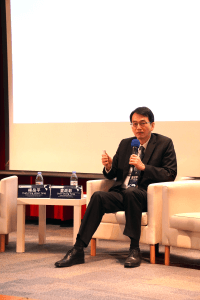
Chief Advisor Kuo-Chu Ma of CHIEN YEH Law Firm drew on his extensive experience as a certified public accountant to share insights into the strategic planning of entrepreneurs, while offering a macro-level analysis of global economic trends and competitive dynamics. Approaching the topic from a political economy perspective, he explored the future of industrial chain integration, touching on key issues such as the tightening and loosening of monetary policy, the resurgence of nationalist capitalism, the rebalancing of functional currencies, the emergence of new economic barriers driven by ESG standards, the evolution of responsible and sovereign tax regimes, and the reconstruction of taxing rights.
Mr. Ma emphasized that enterprises should proactively adjust the structure of their balance sheets and income statements, rather than shifting the burden entirely onto central banks or financial regulators. He urged Taiwanese companies to build transnational operational and legal alliances with strategic flexibility to stay competitive. Given that Taiwan’s economy is largely composed of family-owned businesses, where most business leaders are more accustomed to domestic legal frameworks, he stressed the importance of professional advisors providing forward-looking strategies and tailored solutions to help navigate the changing global landscape.
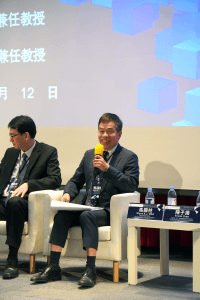
Mr. Tzu-Yang Chen, Managing Director and Head of Investment Banking at Goldman Sachs (Taiwan), shared practical insights based on industry observations. In the face of escalating geopolitical tensions and rising trade barriers, he emphasized that companies must adopt proactive strategies, such as strengthening their capital structures and pursuing mergers and acquisitions, to enhance both competitiveness and scale.
He noted that while Taiwan enjoys ample liquidity and an active secondary stock market, the primary market’s fundraising momentum remains relatively weak—an area he suggested should be a focus for future development. Additionally, consolidation within the financial sector is another effective avenue for improving structural resilience. He pointed out that the recent wave of overseas acquisitions by Taiwanese companies reflects a concrete response to shifting international dynamics.
Mr. Chen also highlighted the rapid growth of private equity funds in South Korea and Japan, which is reshaping corporate operations by enabling businesses to refocus, restart, and gain renewed market recognition—offering a potential path forward for Taiwanese enterprises.
However, he identified a key challenge in the regulatory approval process for mergers and acquisitions. Prolonged review periods may result in companies experiencing multiple market cycles during the waiting phase, amplifying uncertainty and risk. He called on the government to review and improve these regulatory procedures. In conclusion, Mr. Chen encouraged businesses to continue enhancing their competitiveness and expressed hope that financial regulators would provide meaningful support. He affirmed that the establishment of the NTU CIEL Center presents an excellent opportunity to engage in dialogue on these critical issues.
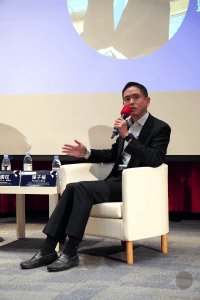
Deputy Director Yueh-Ping Yang concluded the session by reflecting on the insightful discussions. He emphasized that while the Center focuses on innovative and emerging topics—such as developments in technology—fundamental issues in corporate law, including corporate governance, mergers and acquisitions, and fundraising, remain timeless and continually relevant. Though shaped by different historical and geopolitical contexts, these core themes consistently deserve in-depth thought and rigorous academic exploration.
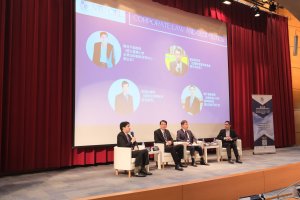
The event concluded with a closing ceremony, during which Deputy Directors Chao-Hung Chen and Yueh-Ping Yangof the Center delivered remarks.
Deputy Director Chen expressed his sincere gratitude to all the guests for their participation. He noted that the roundtable forum featured both an international perspective—with discussions on how the Trump era has influenced corporate legal systems—and insightful contributions from domestic experts representing academia, regulatory authorities, and the business sector. These included viewpoints on global academic research, Taiwan’s financial regulatory landscape, and cross-border mergers, acquisitions, and investments.
He expressed his hope that the Center will continue to invite scholars and professionals from home and abroad, bringing together diverse perspectives and fresh thinking to inspire new ideas and contribute to the continued development of Taiwan’s legal system.
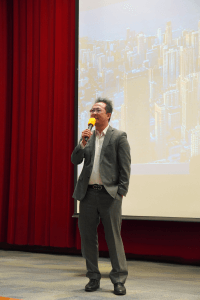
Deputy Director Yang noted that the Center’s acronym, “CIEL,” means “sky” in French. He expressed the hope that the Center’s research will continue to reach new heights, making the NTU Corporate Legal Innovation Research Center not only a purely academic institution but also a collaborative platform for industry, government, and academia. Through ongoing exchanges, the Center aims to serve as a neutral hub, bringing together representatives from various fields to jointly foster the advancement of corporate legal systems.
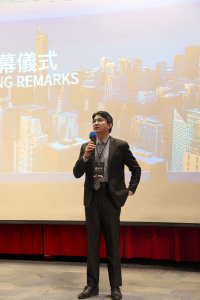
With this, the inauguration ceremony and roundtable forum have successfully concluded. We sincerely thank all the distinguished guests for their insightful contributions and engaging discussions, and we are deeply grateful for the presence and support of all participants. The Center will continue striving to advance innovation in corporate legal systems, and we look forward to working hand in hand with more partners in the future to explore new possibilities together!
